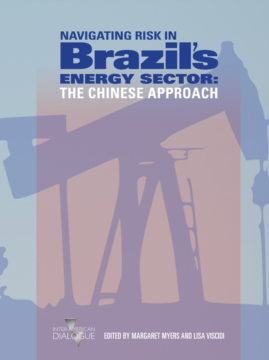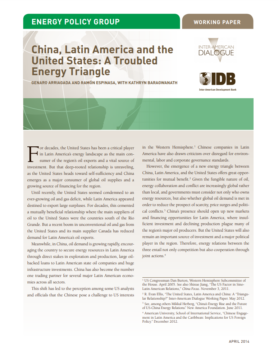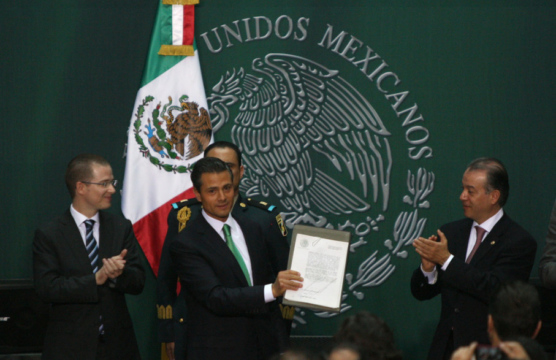
Navigating Risk in Brazil’s Energy Sector
Brazil’s oil and gas and electricity sectors are an important destination for Chinese direct investment.
The Inter-American Dialogue's Energy Transition and Climate Program hosted a virtual fireside chat on October 30, 2024 with Ambassador Paul Simons to discuss how the 2024 US presidential election could impact climate and energy policies in the Western Hemisphere. The event sought to explore how candidates’ positions diverge on issues related to energy security, resource management, foreign energy strategies, climate diplomacy, foreign aid, global health, and US climate diplomacy. The conversation, moderated by program director Alfonso Blanco, examined the implications of either a Trump or Harris victory in these policy areas.
Ambassador Simons opened the dialogue by emphasizing that, broadly, Latin America and the Caribbean (LAC) are well-positioned to thrive regardless of the election outcome, thanks to their abundance of resources needed for the energy transition and positive relations with both the US and China. He made the caveat that for the US energy and climate issues in the region would likely remain behind immigration, US-Mexico trade, narcotics policy, and relations with Cuba and Venezuela in either administration's regional strategy.
On energy and climate policy, key policy differences between the candidates included Trump's pledge to withdraw from the Paris Agreement and roll back energy efficiency and emissions regulations, while Harris would likely continue Biden's climate initiatives. However, Simons highlighted significant overlap in their approaches to oil and gas production, with both candidates supporting increased expansion domestically and encouraging US companies’ expansion into Western Hemisphere production hotspots like Guyana, Brazil, and Vaca Muerta in Argentina.
Regarding regional relations, Simons characterized Trump's approach as "transactional" and uni-or bilateral, contrasting with Harris's emphasis on forming relations based on shared democratic values and multilateral cooperation.
On critical minerals, Simons expects LAC’s critical minerals sector to flourish under either administration, as the region benefits from rich reserves, existing free trade agreements with the US, and Chinese interest in the region. Simons envisioned a “race-to-the-top" scenario in which LAC states leverage their mineral supplies to stimulate both superpowers to locate value-added processes domestically, developing local economies and moving LAC states away from commodity dependence.
Simons expressed skepticism about Trump's ability to dismantle key provisions of the Inflation Reduction Act (IRA), citing the difficulty of changing certain energy and climate provisions and the substantial benefits Republican districts receive from the legislation. Tax credits for electric vehicles, solar and wind energy production, and renewable energy inputs were identified as likely to persist.
Turning to US-Mexico relations, Simons predicted that a Trump administration would focus on reducing the trade deficit and restricting Chinese firms' access to the US market through Mexico, particularly in the electric vehicle sector, with the 2026 USMCA review as a crucial moment for potential policy changes.
The discussion highlighted that while the candidates' approaches to climate and energy policy differ, market forces and existing legislation would likely maintain momentum in the energy transition, albeit at different speeds depending on the election outcome.
Brazil’s oil and gas and electricity sectors are an important destination for Chinese direct investment.
The US’ standing as the main consumer of Latin America’s oil exports is unraveling as China emerges as a major consumer of global oil supplies.
The results of Mexico’s energy reforms may fall well short of government promises and public expectations.
 Main Image: OSCE / Flickr / CC BY-NC 2.0 Attribution-NonCommercial 2.0 Generic
Main Image: OSCE / Flickr / CC BY-NC 2.0 Attribution-NonCommercial 2.0 Generic

 Video
Video